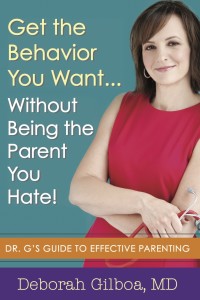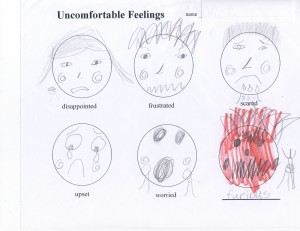|
|
January 1, 2017
This is an updated version of a 2014 blog. The tips still work. Maybe now more than ever.
Well-meaning New Year’s resolutions typically peter out by January 15th. If we’ve been zigging, it’s hard to start zagging and keep at it. Which is why self-improvement is so hard to do. I’m thinking it just might be easier to stop doing something that’s not working than to start in with a whole new game plan. I asked a bunch of teens what they’d like their parents to stop doing in the new year. Instantly, they came up with these three. I pass them on to you, since we’re all in this parenting trip together and building a healthier relationship with our tweens and teens is good for everyone.
 That’s it! I’ve had it with you kids! 1. Yelling. Parenting can be messy and stressful. With everything that’s expected of us it’s easy to get frustrated or overwhelmed. If yelling has become your go-to place, you need to stop. When you lash out at your kids, your spouse, or your dog, you are polluting your home and hurting your family. If you don’t have at least one healthy stress-management tool that you’d be happy to see your kids emulate, you’ll be a less effective parent. I recommend breathing. Breathing requires no gym membership or special shoes. It’s free and always available. Yes, it’s habit-forming, but in a very good way. Try this 6-step Relaxation Response. It works. Tip #1 – Stop yelling and start breathing and your kids will give you less to yell about.
2. Tuning out. Parents, teachers, coaches… adults in general spend a lot of time telling kids what to do, how to act, and what to believe. When kids take the bold step of opening up to us (because they need to be heard), we often don’t listen… not one hundred percent. When we do listen, we may jump in and invalidate what we hear if it makes us uncomfortable. (“You don’t really feel that way.” “Oh, that’s not true.”) We want our kids to stand up for themselves amongst their peers – whether they’re being overpowered in the kindergarten playground or in a teen relationship. But how are they going to learn to be speak up if we don’t give them practice by respectfully listening to what they have to say?
Tip #2 Stop tuning out and start listening with a more open heart and mind and your kids will feel more confident in themselves.
3. Rushing around. Every family needs down time without distractions, digital or otherwise. Hopefully we all got a healthy serving of down-time during the holidays. Vacations are great, but they’re not enough. Not in the noisy, speedy, aggressive world we live in. Most of us need and deserve daily down time, alone and together, as a family. If your kids are still young enough for bedtime stories, what a great chance to cuddle and reconnect each evening. If your children are past being read to, you can still make it a nightly ritual to check in with them for a quiet talk about how the day went for each of you. This is an excellent way to teach kids that conversations are a two-way street. If you want to raise young adults who are empathetic, show your empathy. When you notice something affecting your child’s behavior you can ask, kindly, “You seem upset. What’s going on?” You can also ask this simple question, “What can I do to help?” That lets a child know you care. It also helps him or her think about what kind of help they need.
And let’s not forget meal time. Maybe you’ve heard this before but the research findings are so amazing they’re worth repeating: Kids whose families sit down and eat dinner together at least three times a week get all kinds of benefits. Have dinner together at least 3 times a week and your kids are more likely to do better in school, less likely to use alcohol or illegal drugs and to engage in other high risk behaviors. They’re even less likely to have friends who do drugs. That’s some powerful mojo.
Tip #3 Stop rushing around and start carving out end-of-the-day time to be together right where you are.
Happy New Year from our home to yours. May 2017 bring you and your family many of opportunities to celebrate life and to help others. World peace begins at home.

December 22, 2014
Just started blogging for Huffington Post. Long time goal on my bucket list… check! I haven’t been at it for long, so you haven’t missed much. If you’d like to catch up, here’s where you can subscribe to my RSS feed and/or read the three articles I’ve posted so far.
Since I’m starting this gig during the holiday season, I’m seasoning my posts with holiday spirit. Like this one, from today: This Holiday Season Have Compassion for Relatives Who Drive You Nuts.
It’s a little funny and a little serious. Bottom line, we’ve all got folks in our extended family who can push our buttons like all get-out. (Not sure where that expression comes from but I’ve always liked the sound of it.) Don’t know about you, but when I get my chain yanked I’m at least as unpleasant as the aforementioned button-pushers. No fun for me or anyone else. So in this post I give tips for turning irritation into compassion. Why? So you (and I) can spread a little love in Aunt Gertrude’s direction while teaching our kids that there are times when we all need to put on our ‘company manners’ and be pleasant to everyone.
 Time to get together with the family… Go ahead, read it and you just might have a happier holiday. I hope so!

December 10, 2014
 I’m Annie Fox and I approve this message! I read lots of parenting books, but only recommend the top notch. That means they deliver pragmatic advice in small, well-organized, chunks of digestible wisdom. No big chunks, please. Who’s got the time? It helps a lot if the book’s tone is so engaging I can imagine the author talking to me over a cup of coffee. Also, it’s a good thing if the descriptions of parent-child interactions are so spot-on I’m chuckling and misting over throughout. (Yes, a good parenting book is as likely to make me cry as it is to have me laughing and calling out to David, “Sweetie, you’ve gotta hear this!”) Added requirement for any great parenting book: I have to learn something new. Not so easy because, as I said, I read loads of them.
For all the above reasons, I’m happy to recommend Dr. Deborah Gilboa’s latest book, Get the Behavior You Want Without Being the Parent You Hate. Before I tell you what I learned, let me tell you who needs this book – Any parent who has ever wondered if there’s a better way to get your child to:
1. Brush his/her teeth
2. Get along better with siblings
3. Quit whining about being “booooorrrrreeeed” and learn to manage their free time creatively
4. Do something you require without your constant nagging
… plus fifty other things that kids need to learn in order to be become respectful, responsible, and resilient young adults.
Dr. Gilboa, aka @AskDocG, is a practicing family physician, and a parenting expert. She’s also the mom of four boys who, have apparently brought her to edge of sanity more than once. In the book’s introduction she admits that she has “nagged, yelled at, threatened, and guilted my children to try to get them to behave well. Not all of the time, and usually not on purpose, but, just like many parents, I’ve done all this and more. Not only do I feel really horrible about it afterwards, but (and here is the kicker) it doesn’t work.” So you see, Doc G is also honest, humble and funny. What’s not to like?
Listen to my podcast interview with Doc G.
As for what I learned from Get the Behavior You Want… it came from section 5: What you do is more important than what you feel. Think about it for a minute. Most of the time we mindful parents do our best to get our children in touch with their feelings. “How do you feel now, sweetheart?” “And how did what he said this morning make you feel?” “How do you think you’ll feel about that tomorrow?” The message to kids: how they feel is pretty much the most important thing. Doc G points out that feelings are important, but they should not be accepted as an excuse for poor behavior. Something parents do all the time!
We do it when we say, “Oh, she’s just in a bad mood.” “He’s had a hard day.” “She’s overtired.” Doc G teaches that we need to help our kids become accountable for their behavior. And we can accomplish that by empathizing with our kids’ feelings (“I understand why that made you angry….”) while still sticking with our standards of behavior (“….but biting is totally unacceptable in this family. And here’s the consequence for the doing it…”)
It’s not always easy for an unhappy, overtired child to accept responsibility for his or her actions, but parenting is all about clear standards and consistent responses, isn’t it?
Thanks, Doc G!
Try making this shift in the way you deal with unacceptable behavior from your kids and let me know how it goes.

July 28, 2014
 Feeling uncomfortable? Now use it for good. As we approach the beginning of the new school year, my heart goes out to the kids who are dreading it. They are usually the ones who had to wade through more than their share of social garbage last term. Hopefully they got a needed reprieve during the summer. But they’ve got to go back and most of them (and their parents and teachers) are probably not looking forward to the inevitable crapola (online and off).
Being in the prevention business, I’m always working on ways to make schools more compassionate. Here’s my latest contribution… just a reminder… adapted from the Charter for Compassion’s call to action for cities.
A compassionate school is an uncomfortable school!
Uncomfortable when anyone is threatened, harassed, or made to feel less than.
Uncomfortable when every child isn’t treated with respect by every teacher and every other student.
Uncomfortable when every student isn’t given rich opportunities to grow intellectually, creatively, and emotionally.
Uncomfortable when, as a school community, we don’t treat each other as we want to be treated.
A compassionate school knows uncomfortable feelings aren’t worth zippo, if they don’t trigger action. So a compassionate school recognizes the discomfort and immediately works for change with the full leadership and commitment of all administrators and teachers. With adult leadership, students learn how they too can become change agents. Because, whether students admit it or not, they desperately want their school to be a place where every kid is treated with respect. Every one.
Got it? Good. Now go make your kid’s school really uncomfortable. We’re in this together.

| |















